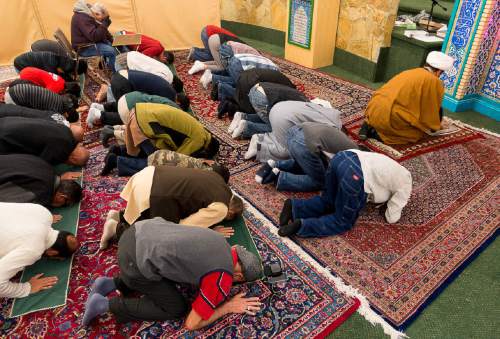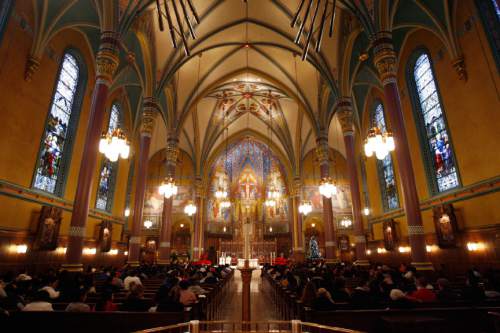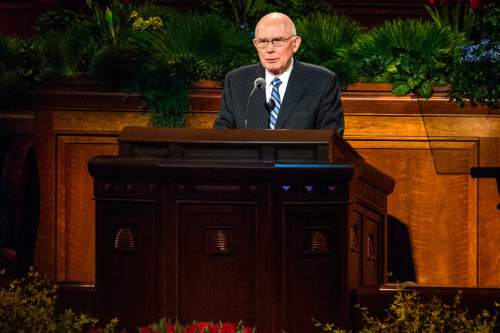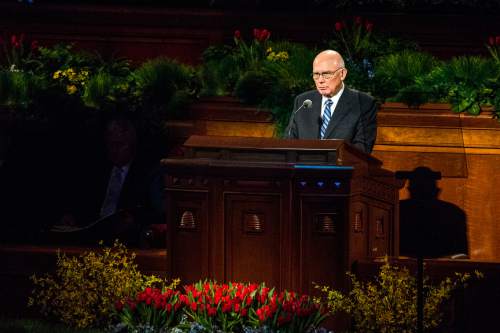This is an archived article that was published on sltrib.com in 2016, and information in the article may be outdated. It is provided only for personal research purposes and may not be reprinted.
Few would be upset — or even notice — the subtle difference between "freedom of religion" and "freedom to worship and believe."
But the Rev. Thomas Reese sure noticed when the Democratic Party's initial platform proposed the latter phrase instead of the former.
"Freedom of religion" is considered "the more expansive term," the Catholic priest writes in the National Catholic Reporter. "It includes worship but also the right of believers to evangelize, change their religion, have schools and charitable institutions, and participate in the public square."
Some states and societies "tolerate religious minorities as long as they confine themselves to their places of worship and don't go out into society," writes Reese, speaking for himself, not as chairman of the U.S. Commission on International Religious Freedom. "But if they try to convert someone, if anyone switches from the dominant religion to another, or if they speak out on public issues, they will feel the full force of the government and society down on their heads."
Witness the new laws about proselytizing in Russia, which forbid Mormon missionaries, for instance, from doing what they are assigned to do — seek converts. They now go by the moniker "volunteers" in that nation.
Seeing the term "freedom to worship and believe" in the platform as a "political land mine," Reese contacted a friend with the party drafting committee and it was changed to "freedom of religion."
For Latter-day Saints, this is no small matter. Mormon apostles speak often of religious freedom, conferences are organized to discuss it, and members are reminded of it frequently.
Now, the Utah-based Church of Jesus Christ of Latter-day Saints is working to construct a website focused on religious freedom, with explanations, descriptions of laws and cases, and links to important documents.
Until the faith's page is launched, interested Mormons are directed to a site, produced by LDS Church-owned Brigham Young University's law school, on the topic.
"The tide of public opinion in favor of religion is receding," apostle Dallin H. Oaks said in a 2009 speech quoted on the site, "and this probably portends public pressures for laws that will impinge on religious freedom."
Peggy Fletcher Stack









